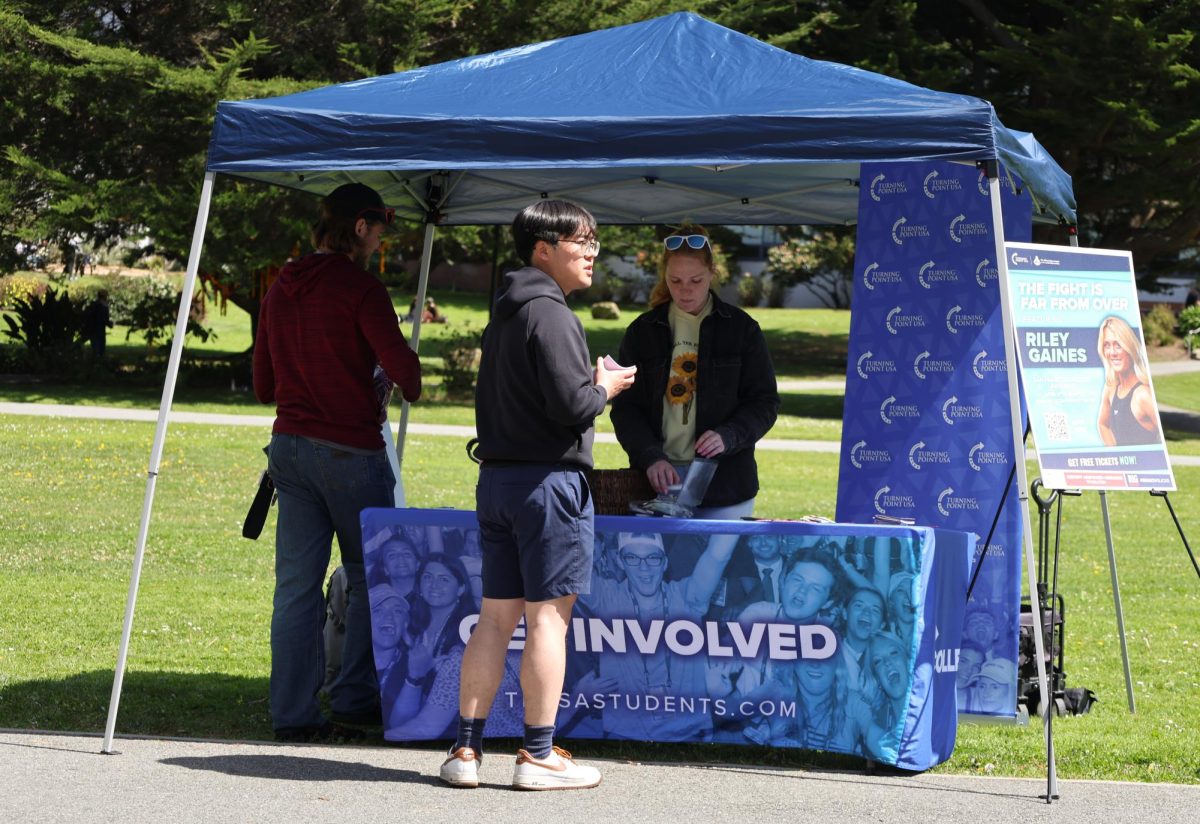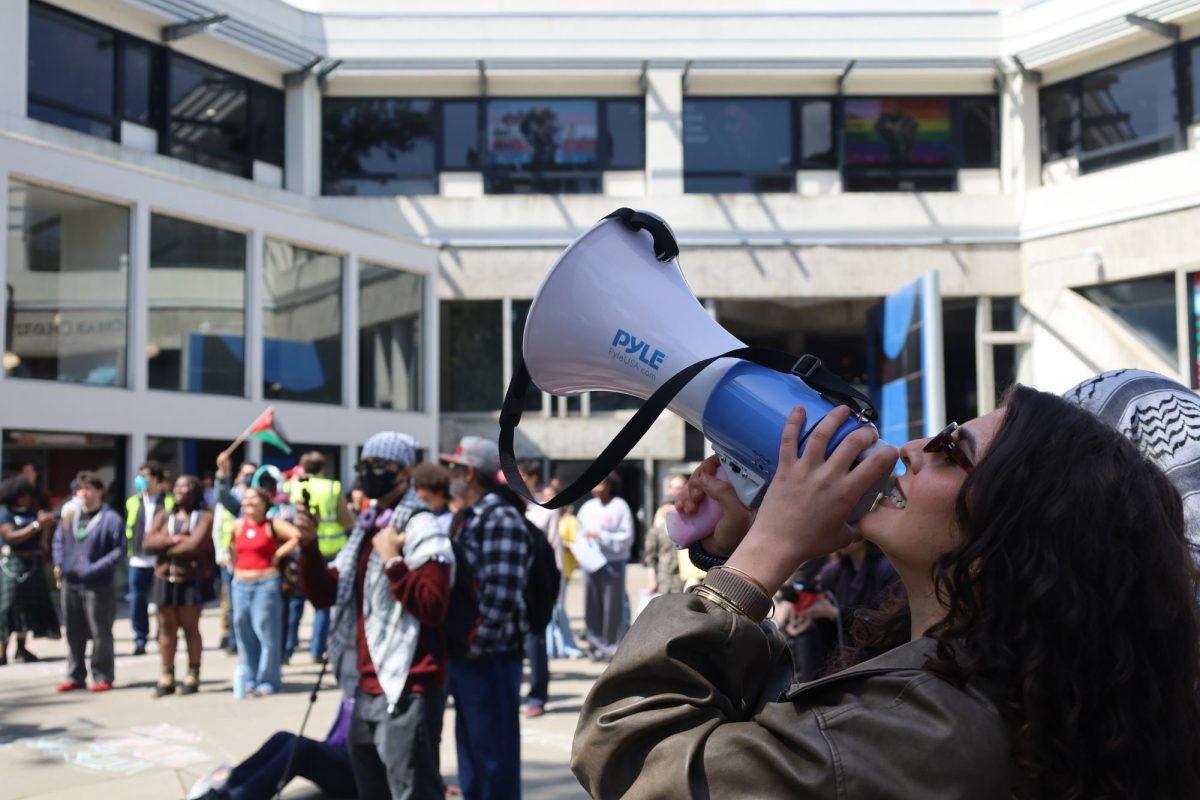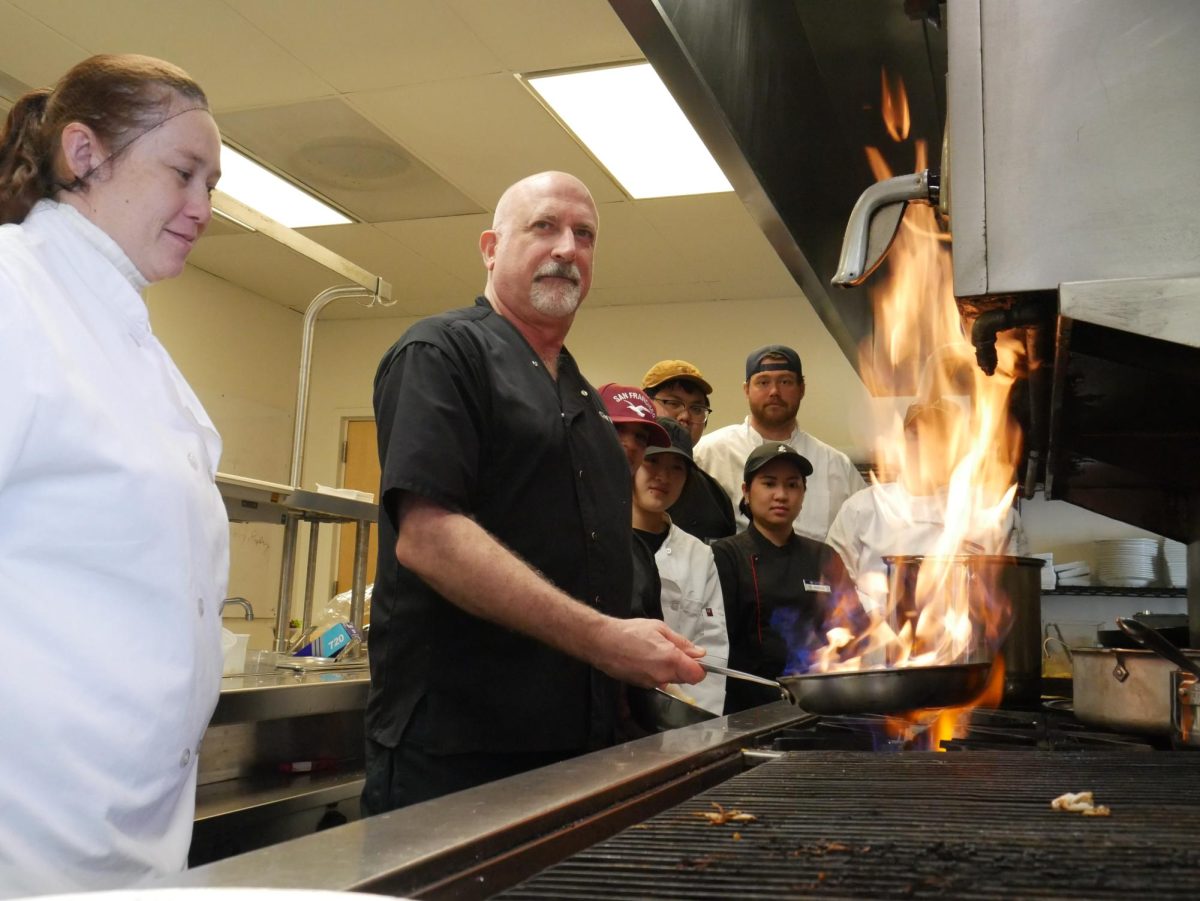If SF State was a nightclub and President Robert A. Corrigan was a disc jockey, right now he’d be leaning into the microphone and telling everyone to do the shuffle.
In the center of the dance floor, shuffling with gusto, are two college deans and an associate dean.
Next semester, these deans won’t be doing their routine steps. Instead, they’ll be sidestepping their positions of leadership by returning to the classroom as full-time faculty because of the University Planning and Advisory Council’s plan to save SF State about $1 million annually.
“Being a dean has forced me to acquire new good traits,” said Joel Kassiola, dean of the soon-to-be-dissolved College of Behavioral and Social Sciences, who will be teaching in the political science department next fall.
“I look forward to sharing whatever skills I have learned with students as I’m returning to the faculty,” he said. “I’ve always considered teaching a privilege.”
The University expects to save about $1 million annually by eliminating two dean positions, two associate dean positions and two college development officers, said Shawn Whalen, chair of the Academic Senate and head of UPAC.
Although the positions will be eliminated, the people who fill them will remain employed, because deans have retreat rights, according to University Provost Sue Rosser. The deans will return to their respective departments for full-time, tenure faculty positions.
Kurt Daw, the dean of the College of Creative Arts, will teach in the theatre arts department, and associate dean of creative arts Ronald Caltabiano will be leaving SF State to take a job as a dean at another university.
“This is a university that is truly making a difference for its students and I have relished being a part of that and look forward to continuing in whatever role lies ahead,” Daw said.
Paul Sherwin, who is the current dean of the College of Humanities, will act as the head of the newly created College of Humanities and Arts.
Associate dean of BSS Sasha Bunge will return to the psychology department, where she chaired before being invited to take on the role of associate dean by Kassiola in August of last year.
The University will save money by reducing the deans’ salaries, Rosser said. Savings will also be realized because the deans will be teaching, which allows their departments to offer more course sections.
Kassiola’s annual salary currently exceeds $160,000, according to the 2010-11 budget report. Bunge earns a salary of $115,008.
Daw has an annual salary of $195,000 and Caltabiano earns the same as Bunge.
Salaries for full-time tenured professors range from $72,142 to $128,400, Rosser said.
Moving Forward
According to Kassiola, when he first came to BSS the college was undergoing major changes. Faculty members from the 60s era were retiring and Kassiola had to hire a whole cast of new teachers.
He also helped start new programs like criminal justice, environmental studies and child and adolescent studies, which is now in the College of Humanities where many BSS departments will go.
In the mid-90s, budget cuts inflicted the campus, but the past two years have been the worst.
“We’ve been through a lot,” Kassiola said. “We ran out of lives I think.”
As the dean of BSS, which houses 3,500 full-time students and 135 full-time faculty members, Kassiola is responsible for the operation of the entire college. His job includes developing curricula, budget management, hiring new personnel, assessing faculty and staff, and handling complaints.
BSS is the biggest college at SF State and has had the largest enrollment growth in the CSU system since 2003, according to its 2006 State of the College report.
“This has been the best deanship I could’ve imagined and probably the best deanship in the United States,” said Kassiola, who came to SF State in 1995 after serving as a dean of undergraduate studies at another college on the East Coast.
“I’m a much better person than I was when I started,” he said.
In addition to teaching next semester, Kassiola hopes to further his research on environmental problems in China, and continue coordinating the environmental sustainability and social justice program.
“The faculty, staff and students have helped me cultivate myself and I am forever indebted to those people,” he said. “You have to grow in order to succeed.”







